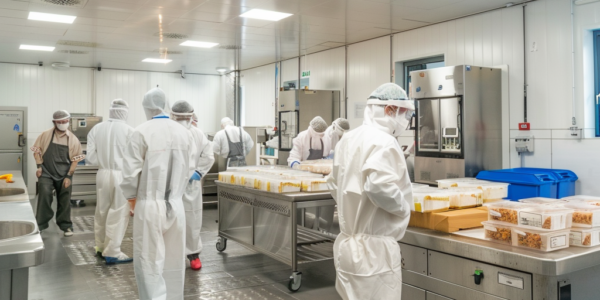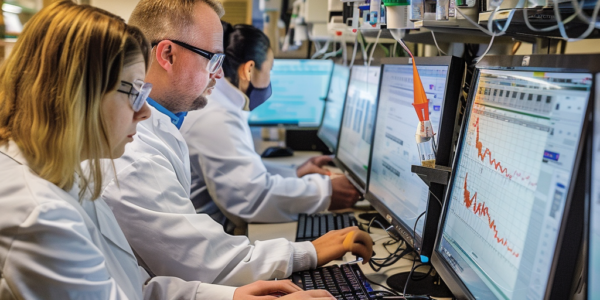WHO to Launch Global Technical Consultation Report on Pathogens Transmitting Through the Air
The World Health Organization (WHO) is launching a global technical consultation report on proposed terminology for pathogens that transmit through the air. The webinar aims to establish a unified language for describing the transmission of air-borne pathogens that can lead to human infection. Experts from various disciplines and major public health agencies will participate in outlining the updated terminology and addressing technical questions. Registration is open for this important event led by the WHO Chief Scientist.
Webinar on Bacteriophages and AMR One Health Perspective
Learn about the upcoming webinar on the broader use of bacteriophages from an AMR One Health perspective, featuring distinguished speakers and focusing on opportunities and challenges associated with the application of bacteriophages for human health. Register now to gain insights into this crucial topic.
New Research Project Targets ECF-T Transport Protein to Starve Resistant Bacteria
New research project aims to develop novel active substances to combat antimicrobial resistance. Prof. Anna Hirsch and her team at the Helmholtz Institute for Pharmaceutical Research Saarland have identified a potential target structure, the transport protein ECF-T, which could be disrupted by new drugs to starve resistant bacteria. This approach could lead to the development of effective antibiotics that address previously unused target structures in pathogens.
Study Finds Listeria monocytogenes Bacteria Persist in Ready-to-Eat Food Production Environments
A recent study by scientists from the Quadram Institute and the UK Health Security Agency found that Listeria monocytogenes bacteria can persist in ready-to-eat food production environments despite cleaning. The researchers discovered stable bacterial populations coexisting with L. monocytogenes, suggesting the need for new strategies to alter entire bacterial populations for complete pathogen elimination. The study’s lead scientist, Dr. María Díaz, emphasized the importance of cleaning in reducing bacterial load and mitigating cross-contamination, while also noting significant differences in bacterial populations in areas of the facility kept at different temperatures.
Study Reveals Surprising Findings on Virus Host Transmission
A recent study has revealed surprising findings on virus host transmission, suggesting that anthroponotic transmission may be more common than previously thought. The study, conducted by scientists from the UK, analyzed nearly 60,000 viral genomes and highlighted the prevalence of viruses transmitted from humans to animals. The research underscores the bidirectional nature of virus host dynamics and emphasizes the importance of comprehensive surveillance and research efforts in understanding and mitigating the risks posed by emerging infectious diseases.
New Digital DNA Melting Analysis Method Revolutionizes Pathogen Detection in Blood Samples
The University of California – San Diego has developed a new method, digital DNA melting analysis, that has the potential to revolutionize pathogen detection in blood samples. This method can produce results in under six hours, significantly faster than current standard methods, and has shown promise in reducing false positives. A pilot clinical study demonstrated the effectiveness of this method in detecting sepsis, providing faster detection and the additional benefit of quantifying the pathogen’s presence in samples. This breakthrough could have a profound impact on infection diagnosis and treatment, particularly in critical cases such as sepsis.
Researchers Make Breakthrough in Developing Disease-Resistant Corn
University of Illinois Urbana-Champaign researchers have made significant progress in developing disease-resistant corn, a major win for growers. The study identified genomic regions associated with resistance to four major diseases, paving the way for the development of corn varieties that can combat multiple diseases simultaneously.
UKHSA Unveils 5-Year Pathogen Genomics Strategy for Pandemic Preparedness
The UK Health Security Agency (UKHSA) has unveiled its Pathogen Genomics Strategy, outlining a 5-year plan to enhance the organization’s role in pathogen genomics for pandemic preparedness and response. The strategy aims to improve the detection and understanding of pathogens…
Scientists Warn of Potential New Pandemic Threat from Ancient Arctic Viruses
A team of scientists has issued a warning about a potential new pandemic threat that could be unleashed by ancient viruses frozen in the Arctic permafrost. The Earth’s warming climate could release these long-dormant viruses, leading to a major disease…
New Study Reveals Plant Immune System’s Regulation of Iron Uptake
Plants have long been known to have a sophisticated defense system against pathogens. However, a recent study published in Nature sheds light on a new aspect of plant immunity – the regulation of iron uptake. Researchers have discovered that when…










